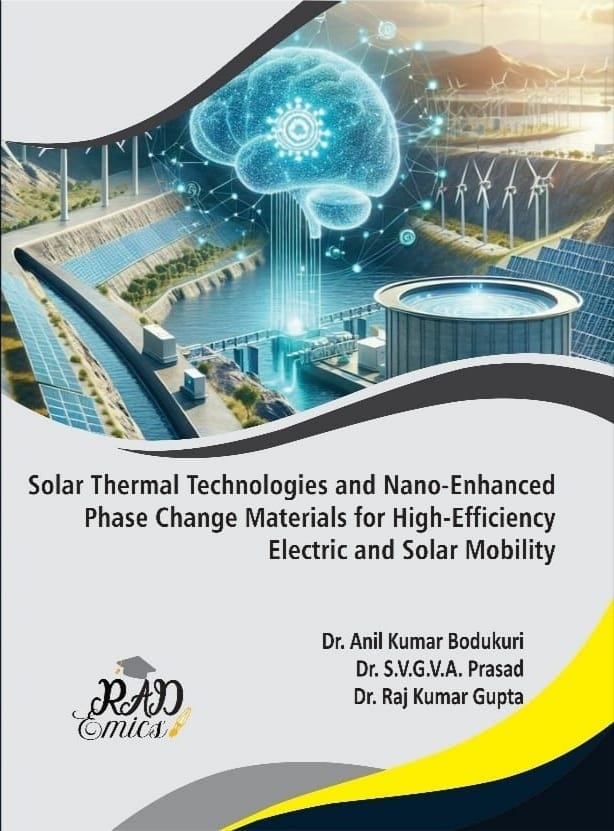
Author Name : Samatha Naidu, Swarna Surekha
Copyright: @2025 | Pages: 36
DOI: 10.71443/9789349552654-14
Received: 29/01/2025 Accepted: 21/04/2025 Published: 27/06/2025
The convergence of Internet of Things (IoT) and smart sensor technologies with solar mobility systems represents a transformative pathway toward enhancing energy efficiency and enabling predictive maintenance in sustainable transportation. This chapter systematically explores the integration of advanced sensor networks and IoT architectures to optimize solar vehicle performance through real-time data acquisition and analytics. Emphasis is placed on the deployment of intelligent monitoring frameworks that facilitate proactive fault detection, energy management, and adaptive control strategies, thereby reducing operational costs and extending system longevity. The discussion further addresses critical challenges including data privacy, ethical considerations, and regulatory frameworks essential for the responsible implementation of connected solar mobility solutions. Sustainable design principles and resilience to environmental variability are examined as foundational elements supporting long-term adoption and scalability. This comprehensive analysis offers insights into the intersection of technology, policy, and sustainability, providing a robust framework for future research and development in the field. The findings underscore the vital role of interdisciplinary collaboration in advancing smart solar mobility toward a low-carbon, efficient, and reliable transport ecosystem.
The increasing urgency to mitigate climate change and reduce reliance on fossil fuels has accelerated the adoption of renewable energy sources, with solar energy playing a vital role in the transportation sector [1]. Solar mobility, which encompasses solar-powered vehicles and infrastructure, offers a promising solution to achieving sustainable and clean transportation [2]. The to maximize the effectiveness and adoption of solar mobility, it is crucial to leverage emerging technologies that can enhance operational efficiency and reliability [3]. The integration of Internet of Things (IoT) platforms with smart sensor technologies presents a transformative opportunity to monitor, manage, and optimize solar mobility systems in real time [4]. By embedding intelligent sensors capable of collecting and transmitting critical performance data, solar vehicles can adapt to changing conditions, conserve energy, and anticipate maintenance needs, thereby enhancing overall system performance and longevity [5]. The core advantage of incorporating IoT and smart sensors within solar mobility lies in their capacity to generate extensive real-time data streams, enabling comprehensive situational awareness and decision-making [6]. These technologies support sophisticated analytics platforms that analyze energy consumption patterns, environmental conditions, and mechanical health indicators, which collectively contribute to energy-efficient operation and predictive maintenance scheduling [7]. Predictive maintenance powered by IoT not only minimizes unexpected breakdowns but also reduces maintenance costs by addressing faults before they escalate into serious failures [8]. The energy efficiency is optimized through intelligent control systems that adjust power distribution, battery management, and solar energy harvesting in response to dynamic conditions such as weather changes and vehicle usage patterns [9]. This integration ensures that solar mobility systems remain both economically viable and environmentally sustainable [10].